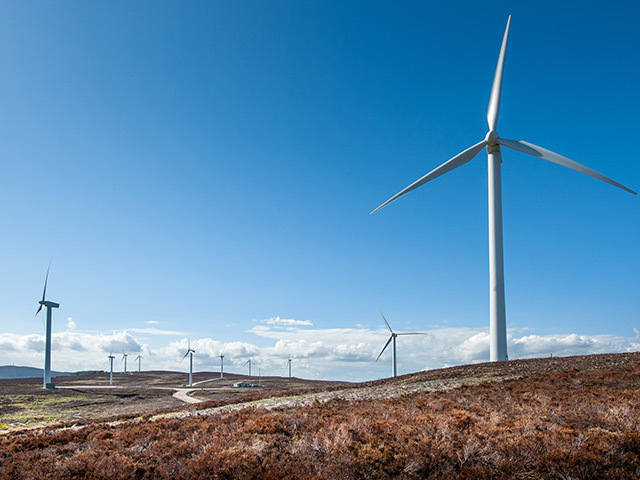
The renewables industry has hit back at Tory and Ukip pledges to stop new onshore wind farms with a report showing the sector added more than £900 million to the economy last year.
According to the study, the onshore wind industry generated £906 million in gross value added revenue to the UK economy in 2014, with £7 in every £10 invested staying in the UK.
More than a quarter (27%) of the economic benefits of onshore wind went to the area around the wind farm and almost half (48%) stayed in the UK region where the project was located, the report said.
The report by BiGGAR Economics for industry body RenewableUK showed that the revenue onshore wind adds to the economy has risen by £358 million since the beginning of 2012, a 65% increase.
A typical onshore wind farm sees investment of £2.97 million per megawatt of capacity over its lifetime, 69% of which stays in the UK, with the local share of contracts in development, construction and operation all rising in the last few years, the study said.
RenewableUK’s chief executive Maria McCaffery said the benefits to the UK of British onshore wind energy were “clear to see”.
“Onshore wind powers local economies, bringing £199 million of investment into the local communities that host wind farms and creating jobs across the supply chain.
“The industry is helping to propel Britain to a brighter, cleaner and more secure future – onshore wind is already the lowest cost of all low carbon options and is set to become the least cost form of all electricity within the next five years.
“Despite these facts, onshore wind projects are under threat from misguided Tory and Ukip policies aimed at stifling their development, blatantly disregarding rational economic evidence and consistently high levels of public support.”
The Tories have said they would end new public subsidies for onshore wind farms and change the law so local people have the final say on them, as they “often fail to win public support and are unable by themselves to provide the firm capacity that a stable energy system requires”.
Ukip has also said it would end subsidies for wind farms, saying in its manifesto that the technology was “hopelessly inefficient” and had “blighted landscapes and put money into the pockets of wealthy landowners and investors, while pushing up bills for the rest of us”.
According to the RenewableUK report, onshore wind supplies 5.6% of the UK’s electricity, while there were 13,600 jobs in the UK in the sector in 2014, up from 8,600 three years earlier.
Support for all low carbon power sources such as onshore and offshore wind, solar and biomass, added £35 to the average household bill in 2013, the Government’s Committee on Climate Change has said, a cost which is set to rise to £75 by 2020.
The latest public attitudes survey by the Department of Energy and Climate Change (Decc) found that 65% of people were in favour of onshore wind, while 71% agreed that the renewable industry and developments provided economic benefits to the UK.
Recommended for you
